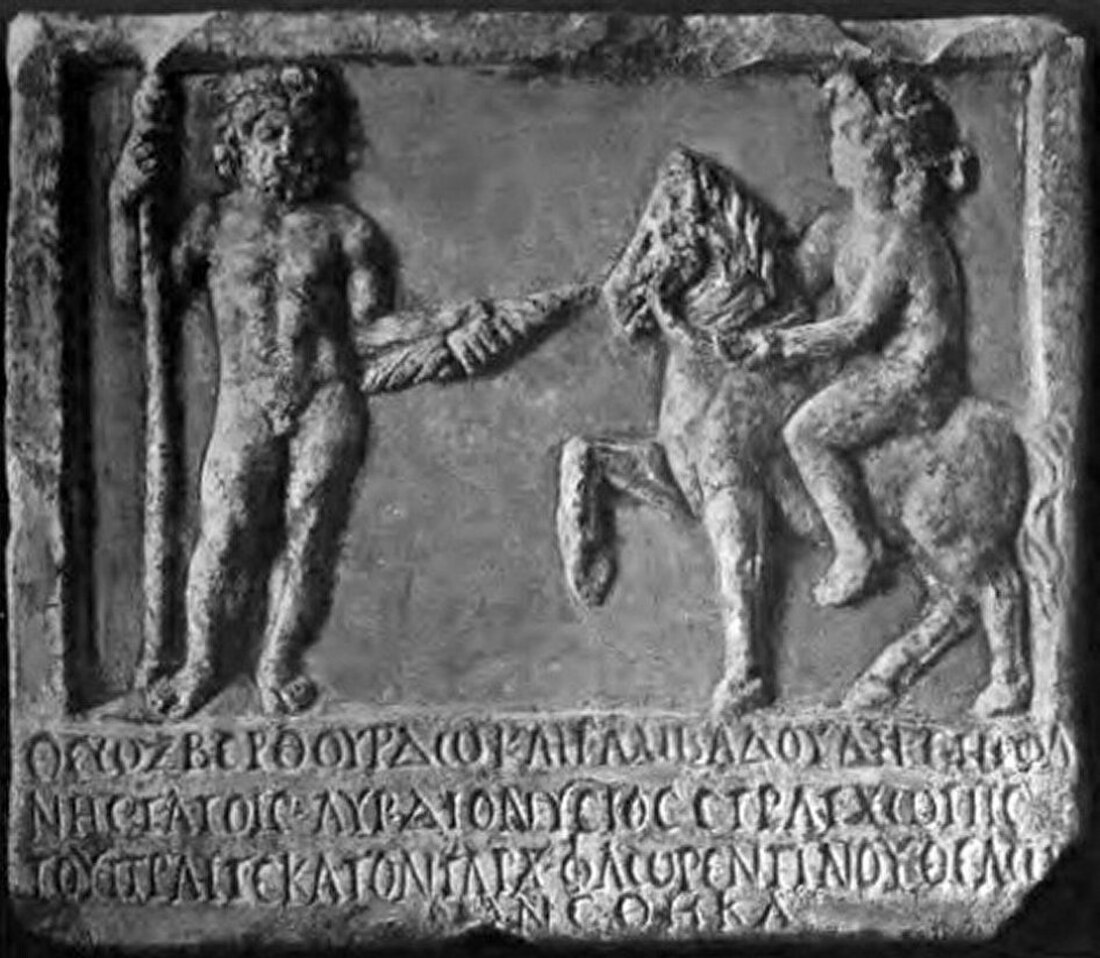Iambadoule
From Wikipedia, the free encyclopedia
Iambadoule is a Thracian goddess, epigraphically testified together with the Thracian god Zberthourdos (Sbelsurdos).
This article needs additional citations for verification. (January 2022) |

Epigraphy
The deity is attested in an inscription written in Ancient Greek. A male deity, identified as Zberthourdos, is standing unclothed with a naked woman on a horse by his side.[1][2]
- θεῷ Ζβερθούρδῳ καὶ Ἰαμβαδούλῃ, ἐπιφανηστάτοις, Αὐρ(ήλιος) Διονύσιος, στρατ(ιώτης) χῶρτις τοῦ πραιτ(ωρίου) ἑκατοντάρχ(ου) Φλωρεντίνου, θέλων ἀνέθηκα
Translation:
- To God Zberthourdos and Iambadoule, the most prominent, Aurelius Dionysius, a local soldier of the praetorian centurion Florentinus, wished to dedicate.
According to Dimitar Detschew, the form Ἰαμβαδούλῃ appears in the dative, pointing to a nominative Ἰαμβαδούλῃ (Iambadoule) or Ἰαμβαδούλῃς (Iambadoules).[3]
Etymology
French archeologist Paul Perdrizet indicated that the particle "-δουλέ" is also attested in personal name Δουλέ-ζελμις, a Thracian mercenary.[4]
Detschew suggested that the deity's name is an epithet of a Thracian earth-mother goddess, translated as "the one that places the grain", with "iamba" meaning "wheat; wealthy, nutrition", and "doule" from Proto-Indo-European *dhe- 'to place', plus nomen agentis suffix -lo.[5]
Bulgarian linguist Vladimir I. Georgiev proposed that Iambadoules means 'rainstorm, thunderstorm', from Dula 'the storm',[6] with relation to Old Iranian ambhas 'water' and Greek θύελλα (thúella) 'storm'.[7]
Legacy
According to researcher Dragoslav Antonijević, Dragojlovic argued that the South Slavic character of the samovila (a fairy-like figure) is a continuation of this Thracian goddess.[8]
References
Further reading
Wikiwand - on
Seamless Wikipedia browsing. On steroids.
